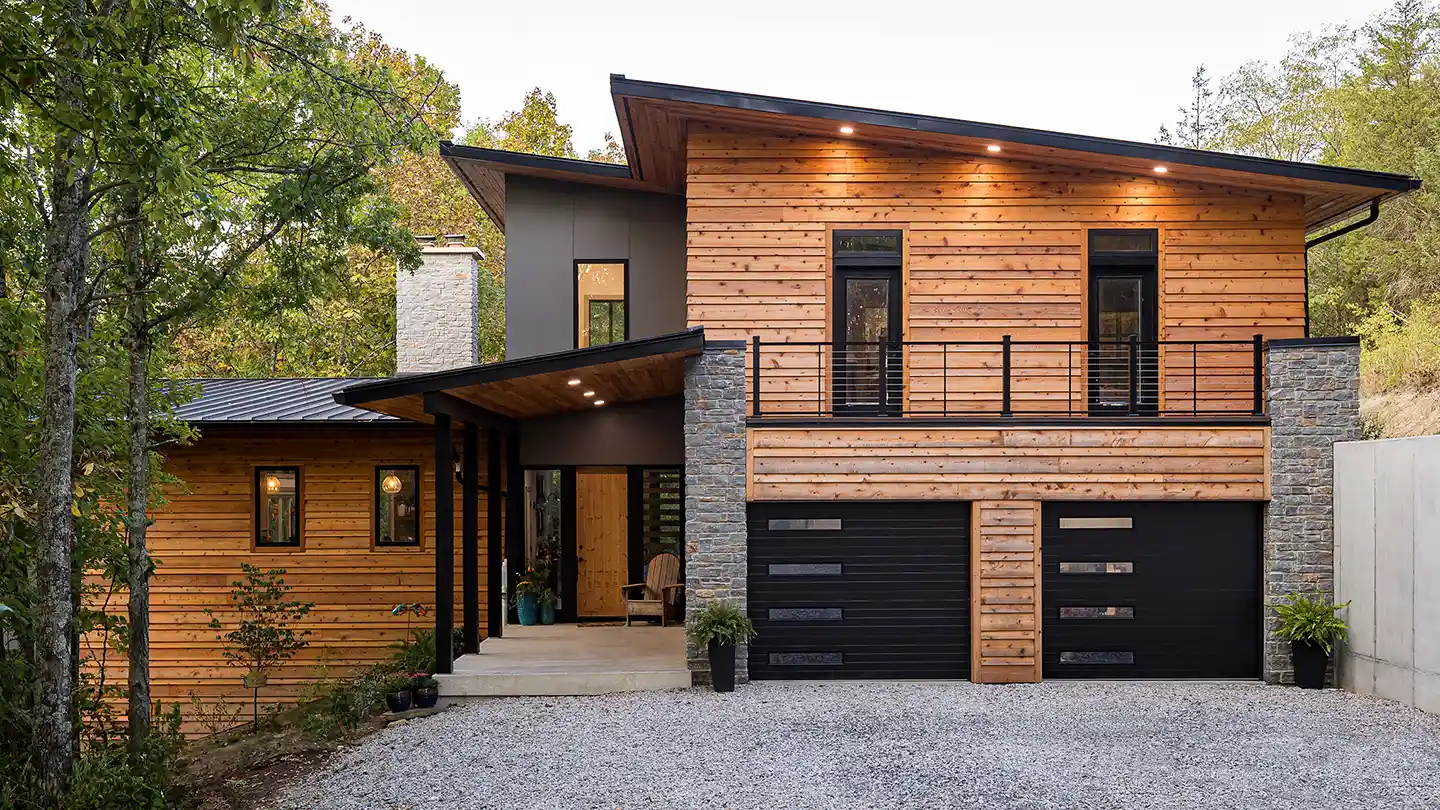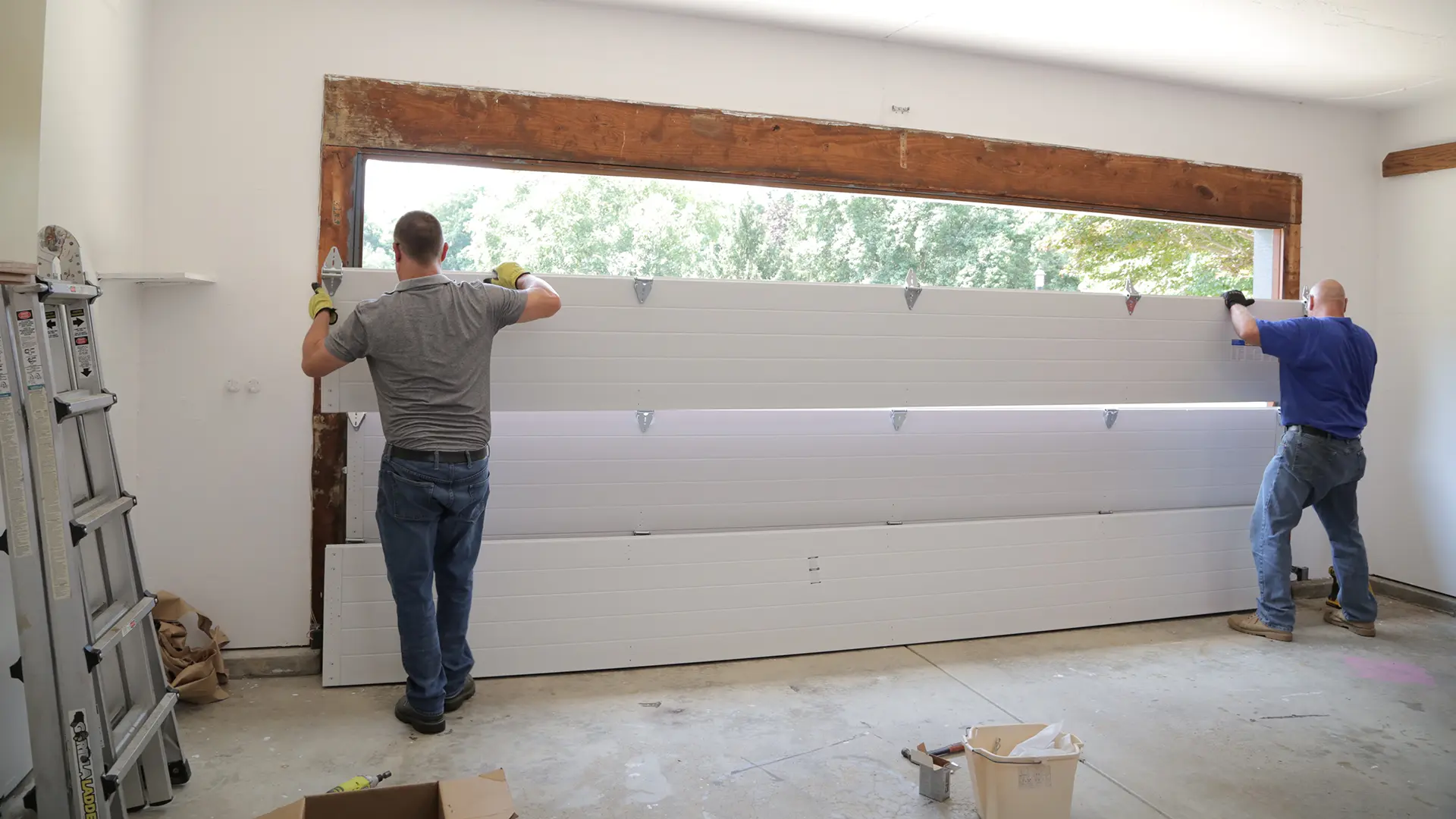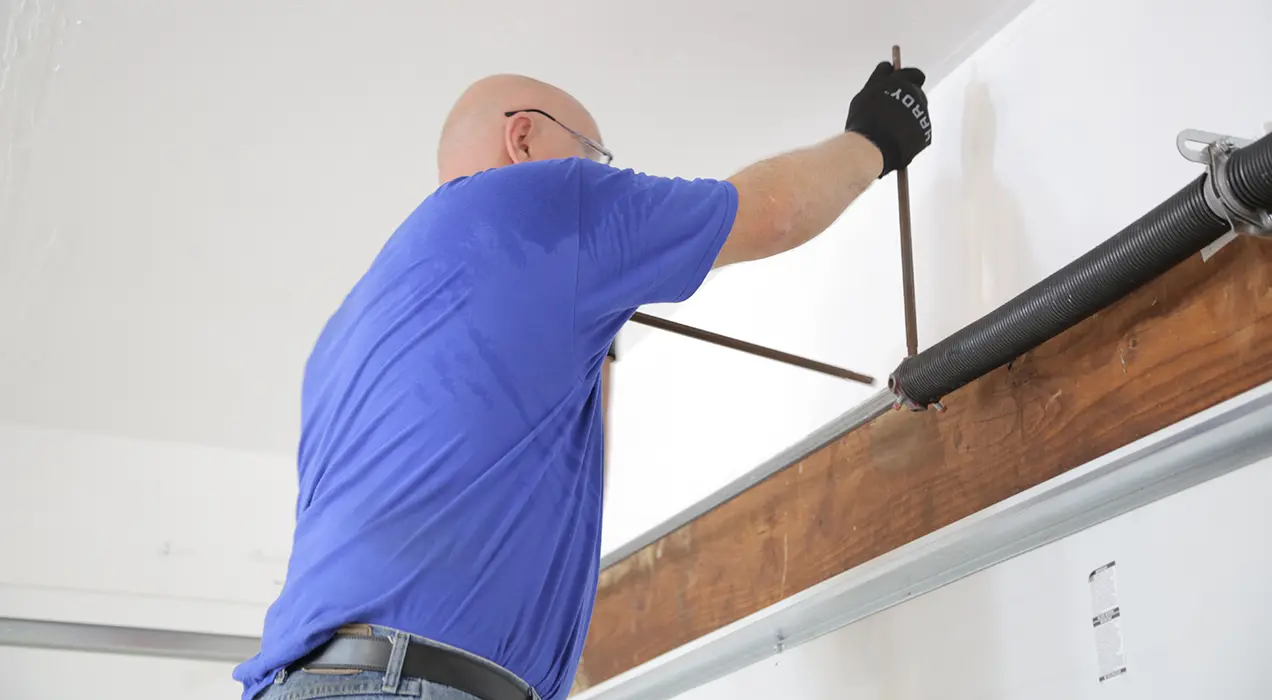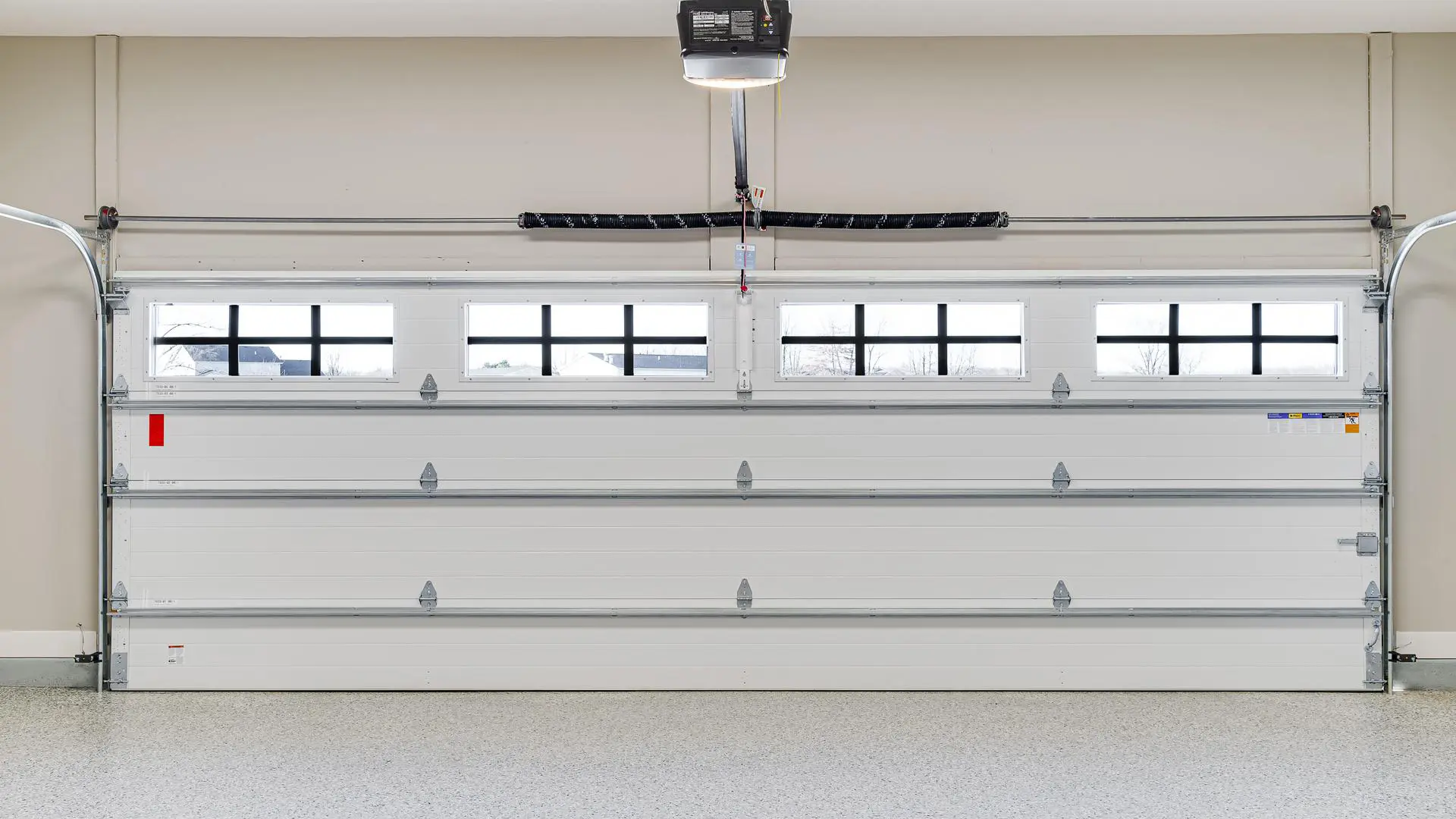When your car's stuck inside your garage at 7 AM, that morning meeting suddenly becomes the least of your worries. A malfunctioning garage door has a special way of derailing your schedule. Every day, thousands of homeowners face common garage door problems, from springs that snap without warning to rollers that sound like they're auditioning for a horror movie soundtrack. And while these issues are frustrating, they're also very common. These heavy-duty systems cycle thousands of times each year, lifting and lowering doors that often weigh several hundred pounds. It’s important for homeowners to understand what common garage door problems can pop up and why they should be promptly addressed.
Types of Garage Door Repairs
Your garage door's sudden refusal to budge might stem from several different issues, each with its own set of warning signs. Let's break down the most common garage door repairs that you might encounter.
Spring repairs often top the list of garage door problems. These heavy-duty coils do the real heavy lifting, and when they snap, you'll know it – usually with a loud bang that sounds like a firecracker went off in your garage.
Garage door opener issues tend to be less dramatic but equally frustrating. When your opener starts making unusual noises or the door reverses before hitting the ground, it's telling you something's wrong. They can develop problems ranging from worn gears to faulty circuit boards.
Dented or damaged panels might seem like merely a cosmetic issue, but they can throw off your door's entire balance. Even a small dent can force other components to work harder, leading to premature wear. Panel repairs or replacements become important when damage affects the door's operation or insulation.
Track problems often announce themselves through scraping sounds or a door that seems to wobble as it moves. Misaligned or damaged tracks can cause your door to stick or even jump off its track entirely – a situation that can quickly turn dangerous.
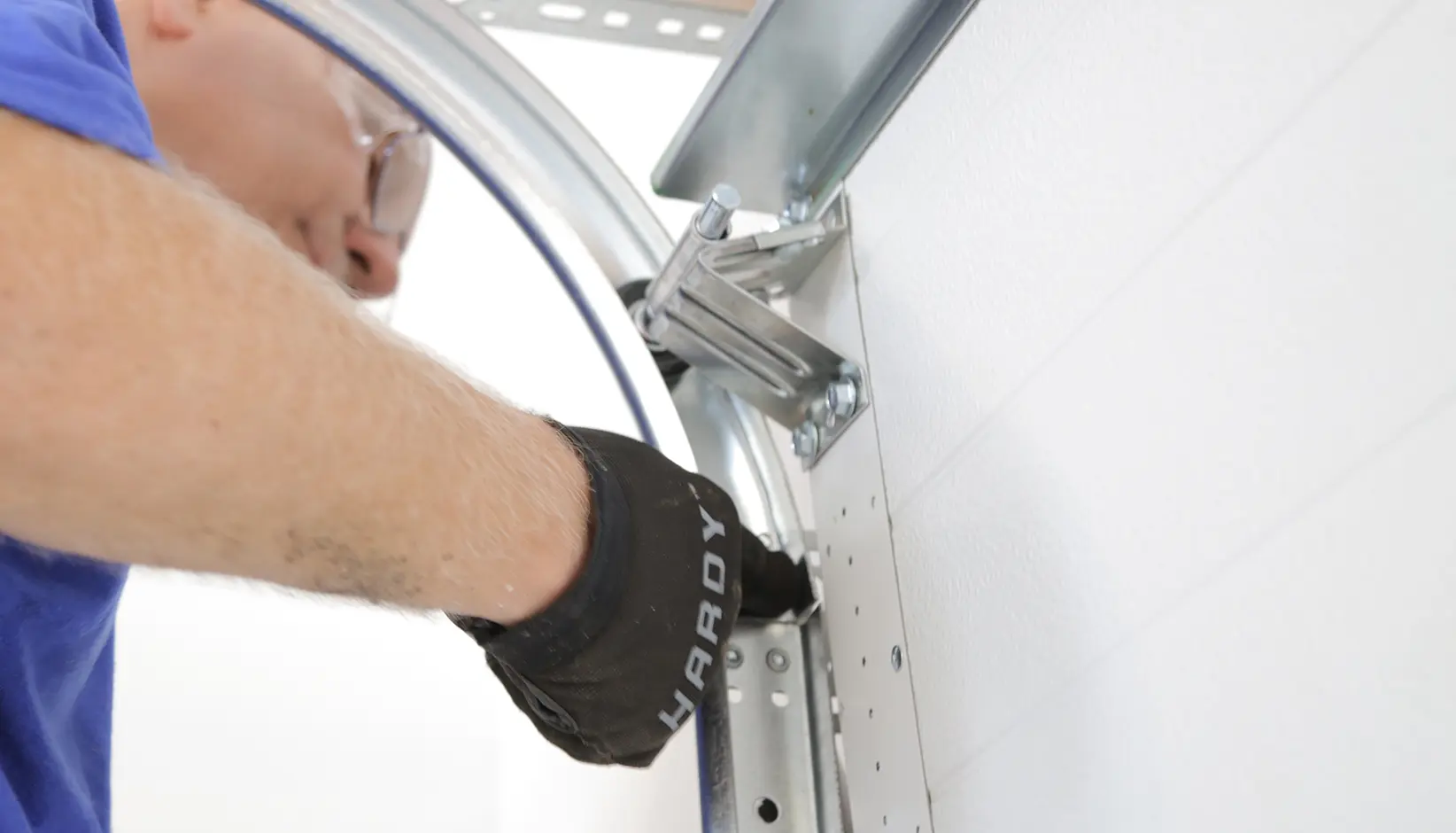
Cable repairs might not be as well-known, but they work hand-in-hand with your springs to lift and lower the door safely. Frayed or snapped cables can leave your door hanging unevenly or completely inoperable.
Ignoring these issues rarely ends well. What starts as a minor annoyance – a squeaky roller here, a slight delay there – can escalate into major repairs that impact your day and your wallet. Think of garage door maintenance like you would your car's oil changes: regular attention prevents bigger headaches down the road.
Garage Door Spring Repair
When it comes to garage door repairs, spring issues demand special attention. Your door relies on either torsion springs (mounted horizontally above the door) or extension springs (running alongside the door tracks) to manage its weight. These powerhouse components store massive amounts of tension, making them the muscle behind every door.
Warning signs of failing springs are hard to miss. Your door might struggle to lift, moving like it's fighting every inch of the way. Sometimes it'll slam shut instead of gently closing, or hang crooked like a bad picture frame. That sharp, sudden bang from your garage? Classic sign of a broken spring.
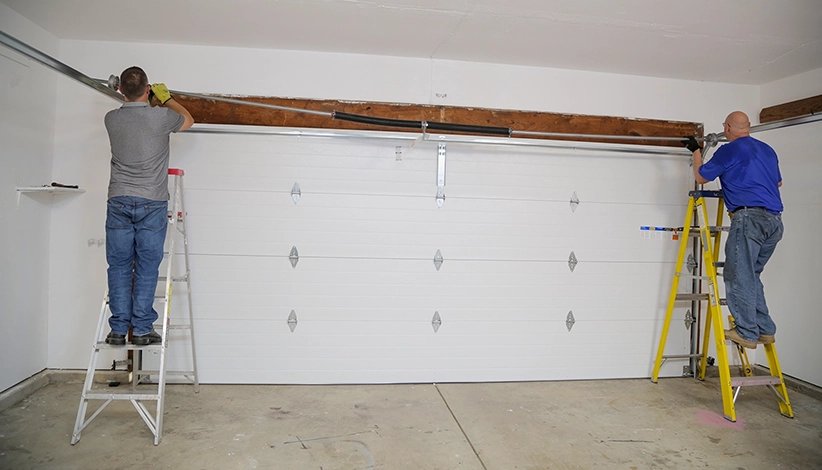
Remember (!) spring repairs aren't DIY territory. These tightly wound components can cause serious injury if mishandled. Professional garage door repair specialists have the tools and knowledge to safely replace springs.
Garage Door Opener Repair
Is your garage door opener acting up? They usually signal trouble well before they completely quit. When your opener starts making grinding noises or takes its sweet time responding to your remote, there’s a problem.
Sometimes it's as basic as dead remote batteries or misaligned safety sensors – those little eyes near the floor that prevent your door from crushing anything in its path. Other times, you're looking at worn-out gears, burnt-out motors, or fried circuit boards.
Before you search for DIY repair videos, consider this: modern garage door openers have intricate safety features. One wrong move – like accidentally disconnecting a safety sensor or misadjusting the force settings – could turn your garage door into a hazard. Plus, some opener issues could actually be symptoms of more serious mechanical problem.
Professional garage door repair technicians bring diagnostic tools and expertise that can spot the difference between a minor hiccup and a major malfunction. They'll also ensure any repairs meet current safety standards – something many DIY fixes miss entirely.
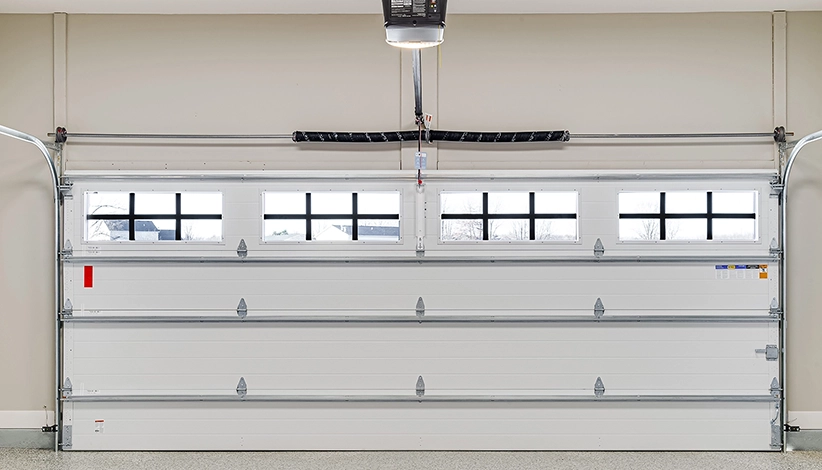
Garage Door Panel Repair
Your garage door panels can take quite a beating – from wayward basketballs to backing up mishaps. While some damage might just be a blemish on the door, other panel problems can compromise your door's structural integrity.
Let's talk damage types: Surface scratches and minor dents might just bug you aesthetically, but deeper dents, cracks, or warped panels can throw off your door's entire balance – even a slight tilt puts stress on every hanging point. When panels are seriously damaged, they force other components to work harder, potentially leading to more extensive garage door repairs.
Sometimes a pro can repair panels through dent removal or section replacement. But if you're dealing with significant damage or an older door, full panel replacement might make more sense. Beyond looks, damaged panels can slash your garage's energy efficiency, letting heated or cooled air escape through gaps and compromised insulation. Plus, modern replacement panels often offer better insulation than their older counterparts – a silver lining if you're forced to upgrade.
Garage Door Track Repair
Think of your garage door tracks as railroad lines – they need to be perfectly aligned for smooth operation. They guide your door's rollers up and down, ensuring your door moves predictably every time. When tracks work properly, you barely notice them. When they don't, your entire door system can go off the rails – literally.
Misaligned tracks announce themselves in several ways. Your door might screech or wobble side-to-side during operation. Sometimes you'll spot visible gaps between rollers and track or notice your door moving unevenly – one side lagging behind the other. These aren't just annoying quirks; they're warning signs that require attention.
Misaligned tracks can cause your door to bind, putting extra strain on your opener and other components. In worst-case scenarios, the door might jump its tracks entirely, creating a dangerous situation that requires emergency repairs.
Professional technicians have specialized tools to measure and correct track alignment. While it might be tempting to grab a hammer and try realigning tracks yourself, resist that urge. Proper track repair requires precise measurements and adjustments to ensure your door operates safely and smoothly.
Garage Door Cable Repair
Those thin metal cables running alongside your garage door might not look impressive, but they're key players in your door's lifting system. Working in tandem with your springs, these high-tension cables help lift and lower hundreds of pounds of door weight.
When garage door cables start to fail, you might notice fraying where individual wire strands start separating, like a rope beginning to unravel. Sometimes cables jump off their drums, leaving your door hanging at an awkward angle. That's a red flag warning you about potential door failure.
Here's the thing about cable repairs: they're among the most dangerous garage door problems to tackle. These cables are under a lot of tension, and when they snap, they can whip around with enough force to cause serious injury. Plus, improper cable installation can lead to rapid wear on other door components or sudden door failure.
That's why cable replacement belongs firmly in professional territory with garage door repair specialists who have the know-how to safely handle these high-tension components.
Your garage door sends clear signals when it needs attention – don't ignore them. While DIY fixes might tempt you, professional garage door repairs protect both your safety and your wallet in the long run. When you notice any issues, reach out to a certified garage door repair specialist.
Frequently Asked Questions About Garage Door Repairs
Q: How do I fix a garage door cable?
A: While it might be tempting to try cable repairs yourself, this is one job that's strictly for professionals. Garage door cables are under extreme tension and can cause serious injury if mishandled. If you notice fraying or misaligned cables, contact a certified repair technician immediately.
Q: How can I fix misaligned garage door tracks?
A: Track alignment requires precise measurements and specialized tools. While you can inspect for obvious issues like loose bolts or debris in the tracks, actual realignment should be handled by professionals. Improper track alignment can cause serious door damage and create safety hazards.
Q: How do I tighten a spring on a garage door?
A: Never attempt to adjust or tighten garage door springs yourself. These components store massive amounts of tension and can cause fatal injuries if mishandled. Spring adjustments require professional expertise and specialized tools. Always call a certified technician for spring-related repairs.
Q: Can I replace just one panel of my garage door?
A: Yes, individual panel replacement is often possible, especially for newer doors. However, matching the exact color and style might be challenging with older doors. A professional can help you determine whether panel replacement is cost-effective compared to full door replacement, considering factors like door age, insulation needs, and overall condition.
Helpful Articles
Guide to Garage Door Maintenance

